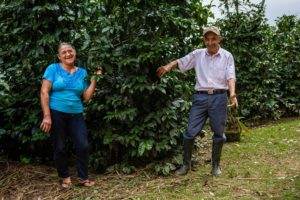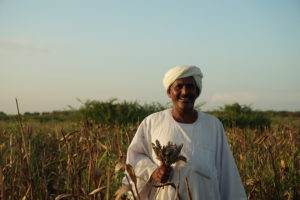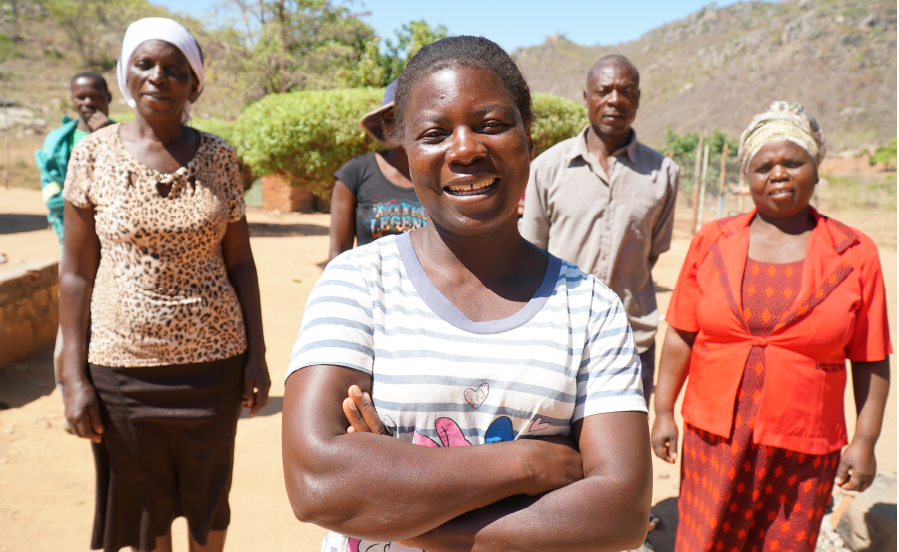What Practical Action expects from the UN Climate Conference in Glasgow (COP26)
Why it matters
Already, people are asking why COP26 matters, and they have a point. We’ve been talking about climate change for decades and we clearly have not been doing enough to reduce our greenhouse gas emissions or to switch our economies from polluting fossil fuels to clean renewables.
The COP is the annual negotiations bringing together representatives of global governments with key stakeholders, such as the private sector, academia and civil society. It reviews progress and identifies areas for greater action and is important as it’s the space where open discussion can take place with all the right people in the room.
But we have made progress. The Paris Agreement in 2015 was a global agreement that has been almost universally ratified and embodies a commitment to global cooperation and collaboration. The agreement recognises that to deliver on a global problem will require everyone to act and despite the minor hiccup of the US withdrawal, they are now back in the fold, restoring a missing link that was weakening the whole.
But the Paris Agreement was just the start, the crucial test will be implementation, this began on 1st January 2020. Hence COP26 in Glasgow will be the moment to assess whether we are delivering what is needed.
Reasons to be cautious
However, a word of caution is that some corporates, especially those with an office in Scotland, will find it a lot easier to be in the room than climate impacted communities from the other side of the world. So, one of the central issues Practical Action will be supporting is a fair and inclusive COP where everybody’s voice can and will be heard.
It’s important to bear in mind that this COP has been delayed by the Covid19 pandemic. Due to inequalities in access to vaccines, many people have been unable to travel to Glasgow. To its credit, the UK government did organise vaccinations for delegates in efforts to minimise impacts on participation, but the registration period for the vaccine rollout plan was way back in June before many people had decided whether to attend.
This means that many delegations from poorer countries with limited vaccine roll out will struggle to be adequately represented in Glasgow. In order to minimise the COP becoming a super spreader event, the organisers are requiring all participants to be vaccinated, insist on quarantine from certain countries and daily access to the venue will be dependent on a negative Covid test.

A collaboration with Practical Action is helping Genero and his family to adapt their coffee farming business to climate change
Reasons to be cheerful
The lockdown and general economic slowdown caused by the pandemic in 2020 did reduce greenhouse gas emissions, but as economies have opened up, these have rebounded and are already starting to exceed previous levels. But Covid19 did shows us there are alternative ways of doing things. The rapid shift from office to home working showed that fundamental and overnight changes in the way our societies operate are possible.
What’s more, as Governments construct their stimulus packages in the post pandemic world, they can lead a shift to build back better. It’s a golden opportunity for a transition that replaces dirty fossil fuels with renewable energy, that ditches the internal combustion engine in favour of electric transportation, and that recognises the value of all sectors of the workforce and embraces new ways of working in what is being called a “just transition”, a society that leaves no one behind.
The current context
Despite reducing greenhouse gas emissions, the scale and pace of the climate emergency has continued to accelerate. 2020 and 2021 have heralded a series of escalating climate extremes in the form of wildfires in Greece, Turkey, Italy, Russia, the United States and Australia. In Germany, China and New York City heavy downpours have trapped and killed thousands of people. We have seen heat domes, cold snaps, and tropical storms including Hurricane Ida in the US, Cyclone Seroja in Indonesia, East Timor, and Australia. Wherever you live around the world, the climate crisis has never felt so real.
This shift has been confirmed by the climate science. In August, the United Nations’ Intergovernmental Panel on Climate Change (IPCC) published the first part of its sixth assessment report. The authors state that it is “unequivocal” that humans have warmed the planet, causing “widespread and rapid” changes to Earth’s oceans, ice and land surface.
At the report’s launch, the UN Secretary General, Antonio Guterres said the report was:
“a code red for humanity. The alarm bells are deafening, and the evidence is irrefutable”.
So COP26 in Glasgow will be the first yardstick to measure whether what has been committed is being delivered.

A community in Nepal conducts a mock drill as part of a flood management programme
What will Practical Action be calling for?
In preparation for making the COP outcome as effective and robust as possible these are the five key asks that Practical Action will be taking to Glasgow;
1. Limit warming to 1.5°C
Deep decarbonisation is required to limit future global temperature rise to a maximum of 1.5°C above pre-industrial levels. Each increase in temperature rise adds to the severity of climate impacts. We are currently at only 1C above pre industrial levels and there are already significant human, social and ecological impacts.
2. Scale up Climate Finance
Climate finance needs to be increased considerably, with at least 50% of public climate finance dedicated to adaptation and delivered in the form of grants and not loans. Loss and Damage should also be allocated new and additional finance.
3. Address Loss and Damage
Many low-income and vulnerable communities around the world are facing irreversible and unavoided Loss and Damage from climate impacts. Climate change is disproportionately affecting those who contribute the least to the problem. To respond to this growing inequality, a new climate finance mechanism is needed capable of mobilising at least $75Bn by 2023 and the COP needs to agree the form and function of the Santiago Network on Loss and Damage (SNLD) to mobilise this support.
4. Drive inclusive action
All climate action must be grounded in a whole-of-society approach that includes women, youth, low-income and marginalised groups, and Indigenous Peoples. Only a diverse and inclusive COP that recognises these groups as rights-holders can overcome the blockages that stand in the way of tangible and equitable progress and ensure that resulting climate solutions work for everyone.
5. Promote solutions that work for people and nature
Climate finance and national adaptation plans must deliver Locally Led Adaptation (LLA) and Nature Based Solutions (NbS) that reach communities on the frontline of climate impacts, whether they live in rural areas or in urban slums. To do this we need to protect ecosystems, restore degraded lands and mainstream sustainable land management that delivers positive and inclusive outcomes, for people and planet. Our participatory and grounded approach provides long-term and sustainable climate solutions. Big change can, in fact, start small.

Farmer Alzain Mohamed Ali holding a successful crop grown from climate resilient seeds in Yarwa village, Blue Nile state
What is a “Just Transition”?
While it is often helpful to breaks down the climate emergency into these component parts, one thing that we have learned from 26 years of negotiations is that we need to tackle them in a coherent and coordinated way. One way to do this is the frame climate change as an opportunity for a Just Transition.
The world is already witnessing unprecedented climate impacts. To limit future temperature rise to the 1.5oC target, we need to massively cut global carbon emissions within this decade. We’re not on track.
This requires a rapid economic and political power shift – from economies that rely on polluting fossil fuels, to economies that are low carbon and environmentally regenerative.
But it’s not just where we’re going that matters, but how we get there. This transition has to happen fast and it has to happen in a way that’s fair, inclusive and benefits everyone. That includes those who stand to lose out economically. This includes countries, regions, industries, communities, workers or consumers. If we don’t, the process will only get stuck and we’ll never make progress.
Crucial to this, is giving support to people in developing countries who are already experiencing the worst effects of climate change – those who have polluted least but are most affected.
So Practical Action will have a small team at COP26 for both weeks. We’ll have events in the blue zone, open to delegates and decision makers, as well as in the green zone, open to the public. And we’ll be available to talk about what we do and how our approach can offer a model for the future.
Throughout the talks, we’ll be using the lessons from our projects to influence key issues. We will also be participating in high profile events in efforts to share our lessons learned and influence the outcome so that it is commensurate with the climate emergency we face.
